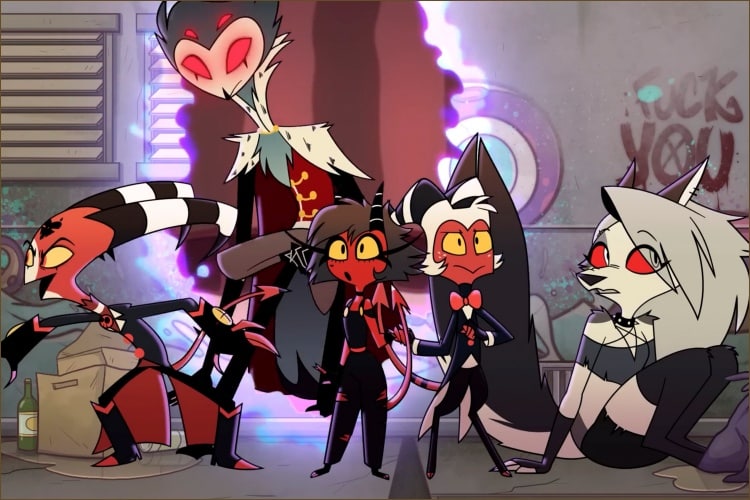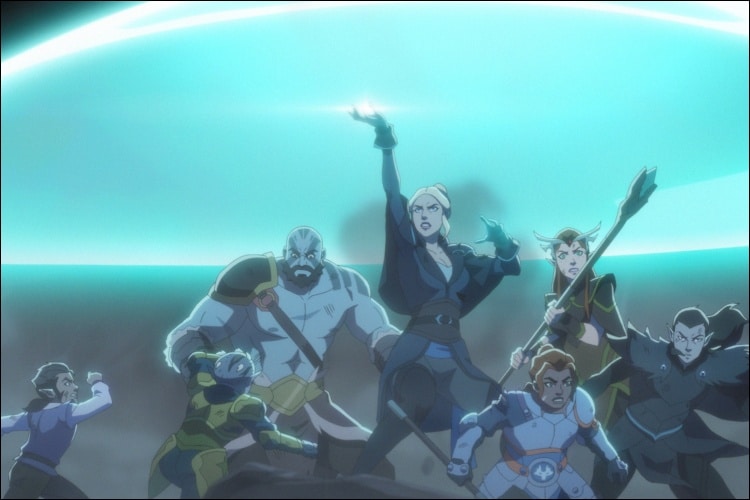Nonlinear Lucky 13
Main Cast: Matthew McConaughey, Alan Arkin, John Turturro
Director: Jill Sprecher
Throughout history, in song, literature, film and innumerable other ways, mankind has continually sought for the answers to the great questions of life. Some would argue that one of the greatest of these quests is the perpetual existential search for “happiness”.
This is the search explored in 13 Conversations About One Thing. Told in a series of intertwining storylines, the film’s style is similar to Magnolia. However, where Magnolia is an opulent, operatic production on a grand scale, 13 Conversations About One Thing is more like a string quartet; small, contained and tightly woven. Each story intercepts the others, sometimes only peripherally, sometimes profoundly.
The movie is staged in a series of thirteen (hence the title) nonlinear sets of scenes, each introduced by a statement in white on black text. A character in one of the previous scenes has said each statement, and the movie uses these lines to delineate the plot. The sequencing of events, left to the viewer to unravel, is reminiscent of Memento, but with the addition of overlapping story lines. This can be quite confusing at times, and viewers may find themselves reviewing the film at the end, reconstructing what happened to who and when. This would be a serious flaw in some movies, but here it simply adds another layer to enjoy dissecting after the film.
The film contains four main story lines. Each story centers, at least obliquely, on the general theme of finding happiness. Three of the four contain adjacent themes as well. There are the Claims Adjusters, led by Gene English (Alan Arkin). Gene is divorced, has a very messed up grown son, and heads up a department having financial troubles. Gene chooses to make the office optimist, Bowman (William Wise) the target of all his misery. He simply can’t stand the fact that Bowman seems so happy all the time. This is something Gene English simply cannot fathom. The adjacent themes of this story are regret and envy.
There are also the Lawyers, led by Troy (Matthew McConaughey). These are members of the DA’s office, and Troy in particular is smugly proud of their dispensing of justice, as he feels personal responsibility is paramount. The adjacent theme of this story is guilt.
Then we have the Housekeepers led by Beatrice (Clea Duvall) who are just trying to make a living. The adjacent themes of this story are innocence and optimism.
Finally, providing the anchor which tethers all the other stories, we have the Academics led by Professor Walker (the marvelous John Turturro). Professor Walker teaches physics, and the themes of the film that are portrayed within the other three story lines are virtually spelled out in the simple story of the Professor and his search for the ever elusive “happiness”.
Some themes, such as those of entropy and irreversibility, are actually subjects of his lectures. Others, such as those of personal responsibility, cause and effect, regret and guilt, are just played out much more simply in this story. This gives the Academics story the feeling of an underlying narrative to the entire movie. In fact, if you try to construct a linear timeline of the events that take place, it is only the Academics whose story spans across all the others, and their contact with the others is by far the most peripheral. It is as if they are there to provide us with an undercurrent of simplicity in an otherwise endlessly complex world.
Writers Karen and Jill (who also directed) Sprecher arrange their scenes carefully so that the viewer has to pay attention lest something be missed, some connection, some time sequence. They have made a movie that doesn’t play all its cards, but makes you work for them, making and understanding connections. Each character wants to be happy, but has different notions of what that means, as well as different baggage to deal with along the way. These characters seek, find, win, lose, act and react to the world in their own unique ways, leading to both predictable and unpredictable outcomes.
The performances in 13 conversations About One Thing are consistently good. Some are outstanding. Alan Arkin conveys a sense of weary bitterness with just the right touch of self-pity. His character is not particularly likeable, but has a certain truthful humanity that softens him a bit. Matthew McConaughey gives an extremely strong performance as a lawyer plagued by guilt. Much of his story is told without dialogue, and the power of his nonverbal acting is impressive. Clea Duvall gives Beatrice a nice combination of optimism and realism. John Turturro is outstanding as Professor Walker, and provides considerable comic relief with his anal-retentive approach to everything. Amy Irving plays the Professor’s wife, but the role is small and the character not developed.
The pace and tone of this film are most interesting. Because of the choppy structure, the pace ebbs and flows with the changing stories. Some are simply more action driven than others, and the pace is appropriate in each one. The overall tone goes from hopeful to depressing and back again a hundred times. The overall feel is somewhat disconcerting, and I believe this is intentional, as themes of luck and fate are also brought into play. The musical score by Alex Wurman, consisting primarily of piano and harp, beautifully underscores both the actual story lines and the up and down nature of the themes. The movie both takes place and was shot in New York City, and the urban backdrop is subtle and effective.
Overall, 13 Conversations About One Thing is a small-scale movie that uses an unusual format to trace its characters search for happiness. Along the way, they become mired in peripheral events, what most of us just see as “life”. It’s how each one’s life leads either toward or away from the ultimate goal, and what they choose to do about it, that makes this a fascinating character study. Strong performances, good direction, and a glorious complexity make this an outstanding film.

Sue reads a lot, writes a lot, edits a lot, and loves a good craft. She was deemed “too picky” to proofread her children’s school papers and wears this as a badge of honor. She is also proud of her aggressively average knitting skills. TV and indie movies are her jam.






Leave a Reply